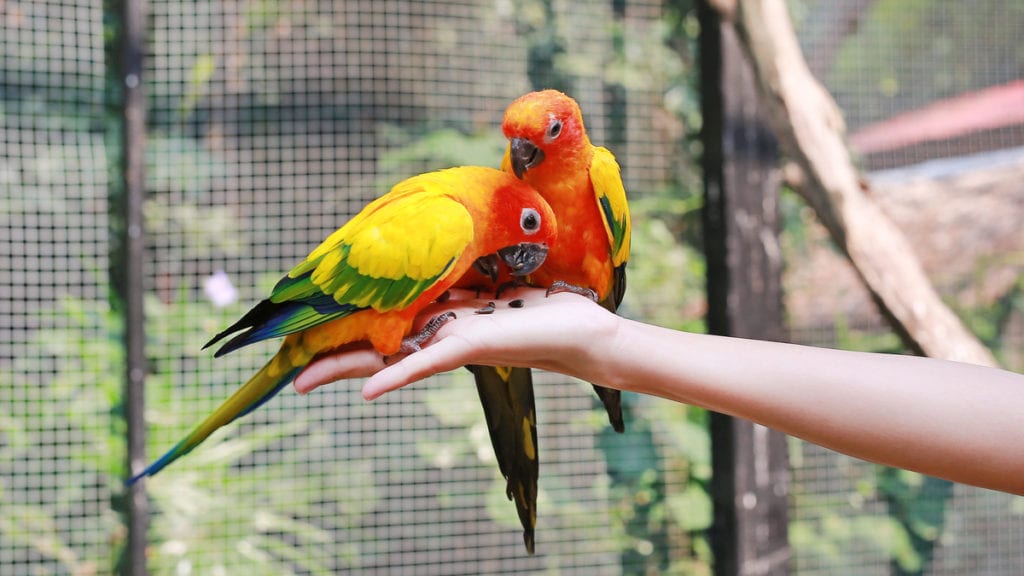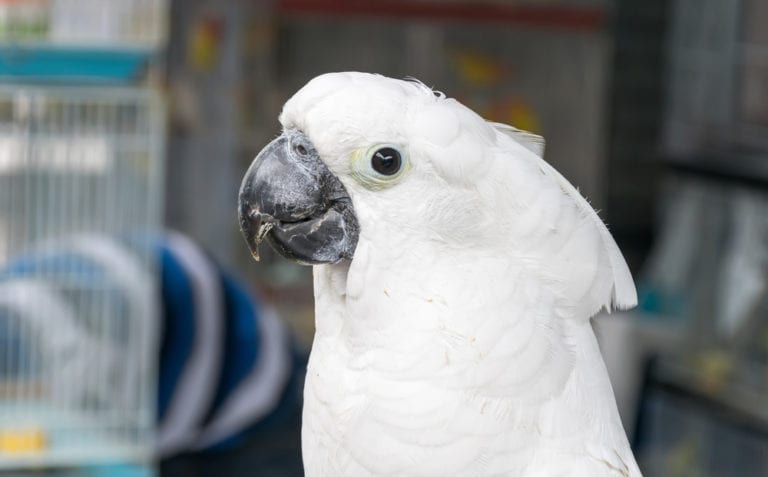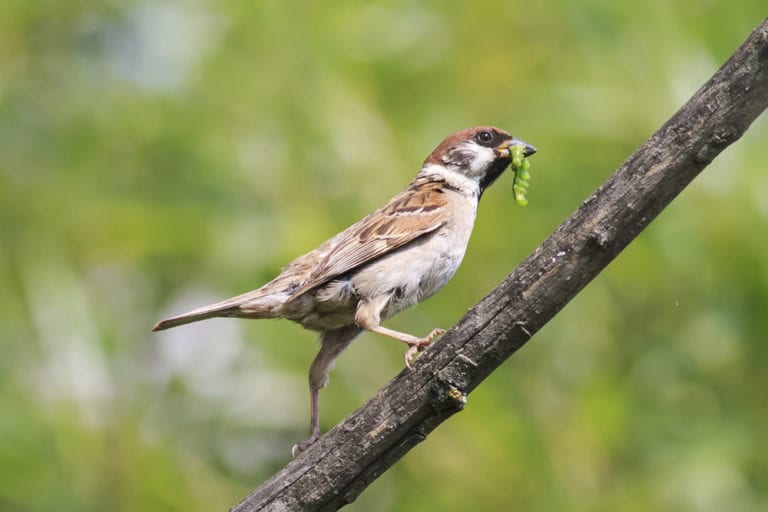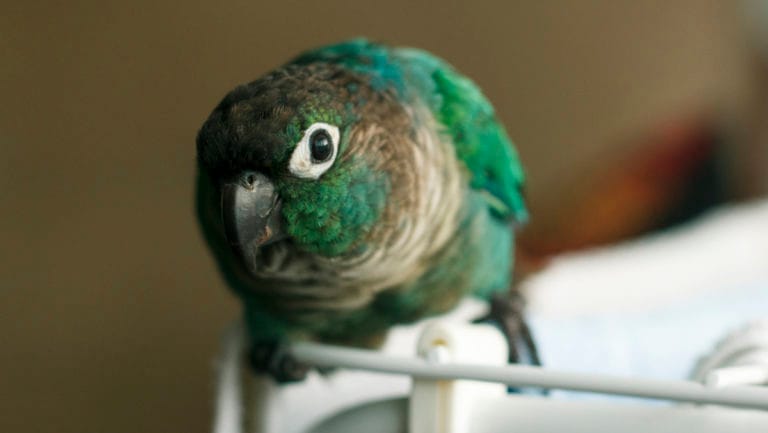Popular Pet Bird Food Myth No. 1: Sunflower seeds are addictive.
There is nothing in sunflower seeds that would cause true addiction. Parrots simply enjoy sunflower seeds, and many would eat them to the exclusion of everything else if permitted. The truth about sunflowers and other seeds is that they are often high in carbohydrates and fats and deficient in vital nutrients.
Pet birds that are fed seed exclusively may become overweight and even develop illnesses, such as atherosclerosis and fatty liver disease.
Popular Pet Bird Food Myth No. 2: Seeds are bad.
Seeds are bad when eaten to the exclusion of anything else, yet there are many good things in seeds, including fat, carbohydrates, some vitamins and trace elements. Seeds fulfill a pet bird’s psychological need for “working” for its food, because the bird must use its beak to crack open the seed.
Seeds are typically low in calcium, and some vitamins, including the important vitamin D3 and lysine, one of the essential amino acids. Certain birds, such as finches, canaries and budgies, subsist on predominantly seed diets in their native habitats. Consult your avian veterinarian for specific advice about your pet bird’s individual requirements.
Popular Pet Bird Food Myth No. 3: Pellets are perfect.
In most cases, a formulated avian diet (pellets, crumbles, etc.) offers excellent nutrition. Manufactured extruded or pelleted diets are the result of years of research and testing, and are often recommended by veterinarians, breeders and other avian professionals.
Pellets are easy to use, and the mess associated with seed hulls is reduced. There are some species-specific pellets on the market and, because some pet birds are sensitive to the colors used in certain formulas, “no color added” versions are often available.
Bird owners often report major difficulties in coaxing a seed-eating bird to convert to pellets. Young pet birds sometimes prefer to eat their pellets moistened rather than dry. Remove uneaten portions of moistened pellets from the cage after a few hours, because bacterial growth may contaminate the soaked food. Replace wet pellets with a dry portion.
If your bird is on a “pellets-only” regimen, consult package directions and your avian veterinarian for guidance on supplements (vitamins are usually not advised) and recommended portions of fruit, vegetables and other fresh foods.
Popular Pet Bird Food Myth No. 4: All varieties of avocados are poisonous to all birds.
Although some varieties and parts of the avocado are considered more toxic than others, it is generally safer to not feed your pet bird any part of the avocado plant or fruit. Some bird breeders, such as lory breeders, have fed their lories avocados without a problem, so some bird species don’t have an averse reaction to some avocado varieties. The toxic fatty acid derivative, called persin, is found in the leaves and possibly other parts of the avocado.
Where does the recommendation come from to not feed your pet bird avocados? According to “A Guide to Plant Poisoning of Animals in North America,” avocado poisoning was first reported in 1942 in California, and its toxin, at the time not precisely identified, affects cattle, horses, goats, canaries, budgies, cockatiels, ostriches and other birds and animals. Ostriches have died of congestive heart failure within 96 hours of eating the fruit and leaves of avocados.
Symptoms of avocado poisoning in other birds include respiratory distress and sudden death.
Find out more about which plants are safe—and which are poisonous—for birds.
Popular Pet Bird Food Myth No. 5: Our pet birds can eat anything we eat!
Many birds love pasta and other people food, and clamor for their share at dinnertime. Sure, parrots like macaws, cockatoos, Amazon parrots and other pet birds enjoy and even benefit from portions of people food, but your pet can also suffer digestive upsets and other problems when it tries to “eat like a human.” If you’re going to feed people food, follow these tips:
- Chinese, Japanese and most other Asian foods are too highly salted to be safe for birds. Potato chips, salted nuts and processed foods are high in salt and fat as well.
- French fries and other fried foods are often loaded with salt and fat. Fat especially is problematic in overweight macaws and Amazons, which are prone to high cholesterol and lipemia (fat in the blood) and atherosclerosis.
- Dried fruit preserved with sulfites may not be the best choice for your pet bird. People sometimes have acute hypersensitivity reactions to sulfites, so an animal as small as a bird may have an even greater sensitivity to them. In many cases, we have to rely on guidelines we use for ourselves until someone discovers that the ingredient affects birds as well.
- No cheese please! Many of us have heard stories about crop impactions resulting from mozzarella cheese, the melted cheese used on top of pizza. So when your bird begs for a piece of your slice, make it a tiny, cheese-free portion. The high-salt content of most cheese makes it inadvisable to feed birds more than occasional tidbits, as salt toxicity may result. Birds are lactose intolerant and, although lactose is mostly processed out of cheese, restrict other dairy products as well.
- Is your bird a “spaghetti hawk” Follow these avian health guidelines: Cook pasta in unsalted water. Avoid salty ingredients, such as olives, anchovies, cheese, ham or other processed meats. Sausage, pepperoni and similar meats contain a lot of fat, salt and preservatives. Remove them from your bird’s treat menu.
- White sauces, such as Alfredo, consist mainly of cream and butter and don’t belong on an avian menu. Plain marinara sauce is usually safe if used in moderation. When you make a big pot of sauce, reserve a little plain tomato sauce for your bird prior to adding meat.
- Reheat leftovers to kill bacteria, then cool before offering them to your pet bird.
- Remove uneaten portions from your bird’s dish after an hour.
Posted by: Chewy Editorial
Featured Image: GOLFX/Shutterstock
Share:









